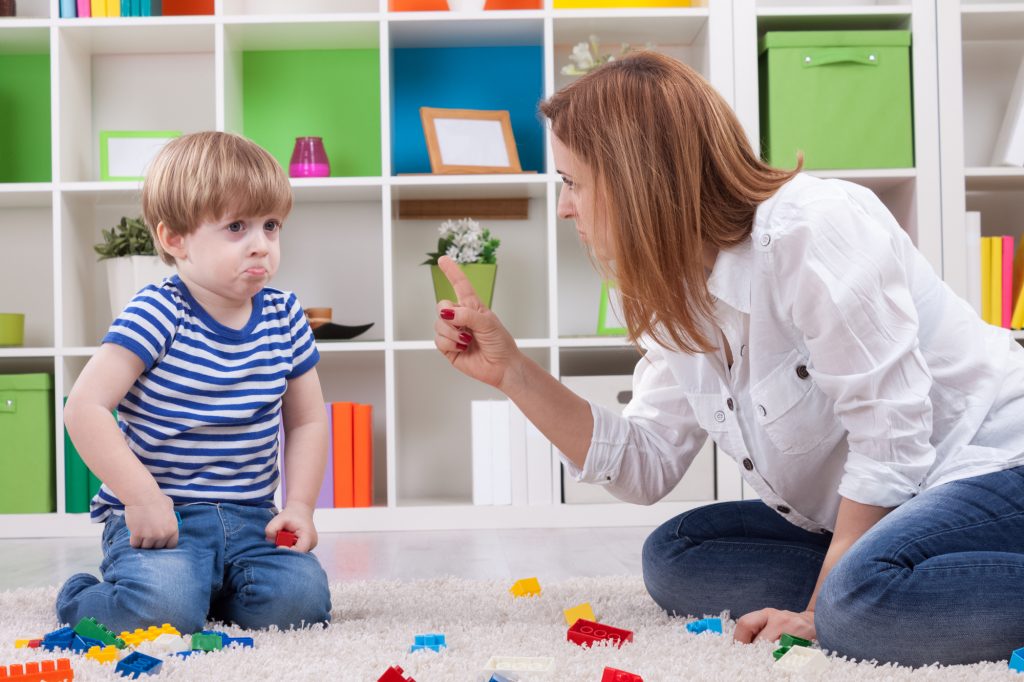
How To Punish a Child – According To Age
- Created:
1. 4. 2021 - Updated:
3. 10. 2023

Some house arrest, ban on television indefinitely, maybe disconnection from home wi-fi. These are punishments used by every parent. Is it really a proven method for generations, or can it be done differently and better?
What should child punishment look like, and why should we not beat children?
Punishments do not work
Punishments are usually relieved for parents, but they do not benefit the child. Most punishments only lead a child to defiance or excessive remorse, and later in adulthood will show, for example, increased aggression or low self-esteem. It’s not even about how you punish the child. What matters is whether the child understands what he has earned. Therefore, from an early age, it is always necessary to explain everything to the child and clearly define what is unacceptable behavior for you. And then warn the child in advance what will follow if he/she does not behave according to the agreed rules.
Do you know why a child is angry at home and not elsewhere?

Children under two years
At this age, children are not yet able to combine their behavior with subsequent punishment. Your task is to keep them out of the reach of dangerous things, because curiosity and the desire to discover them is a basic nature for the child.
However, if a child at this age does what should not do, you must say vehemently “no” and relocate the child. When the child starts to get angry or otherwise resist, let the child wait for two minutes in a quiet place (e.g. in a dining chair) and explain why you didn’t let him. And lead by example, because the child learns most from you. For example, do not look at a mobile phone while eating, because the child won’t understand why you can and he can’t.
3 To 5 Years Old Children
“In this age children beginning to understand the connection between their behavior and what follows it. So it’s time to start setting boundaries and rules clearly. Before proceeding with any punishment, explain to the child what will follow for certain transgressions,” advises an American psychologist Lauren M. O’Donnell in her article for KidsHealth magazine.
Did your three-year-old child paint the furniture with crayons? Don’t punish him, but explain to him why you mind what he/she did. And involve him in dealing with the consequences. He/she should help you wash the furniture.
If the child still exceeds the limits, you can proceed to penalties. But determine in advance how many times a day you can tolerate the child’s transgression. For example, it will help to put paper on a fridge or notice board, where you will put black dots, which indicate a warning.

6 To 8 Years Old Children
At this age are especially important truthfulness and consistency. Children need to know that you are really serious about what you say. “If you threaten to turn the car around and return home, unless your children stop arguing, you have to be sure you will. Your authority is more important at the moment than a failed trip,” advises Lauren M. O’Donnell.
Above all, children at this age need to be motivated. It is better for them to ban television for one day, not for a month. They need to see that if they get better, their privileges will return. And it should be near future.
9 To 12 Years Old Children
Children at this age are beginning to demand more freedom and liberty. Give it to them with everything. They must learn to bear the consequences of their decisions, which they could make thanks to greater freedom. Doesn’t the child have his homework for the fifth time before going to bed? “Don’t remind him, don’t drag him out of bed, definitely don’t help him with the homework. Leave him alone, the next day at school he will clearly feel the consequences of his irresponsibility,” advises Lauren M. O’Donnell.
However, if this punishment does not work, you can proceed to punishments such as banning a mobile phone, no Saturday spent with a friend, and so on.

Children 13 years and older
You still have to set (adjust) the rules – when go to sleep, what are duties at home, when to come home from a friend, and so on. But rather than punishment, it is good to allow the child to be involved in setting these rules (boundaries). Trust your child and let him talk about things that concern him. “Give him at least partial control over his own life, the feeling that he can decide for himself,” says Lauren M. O’Donnell.
The rules in the creation of which the child participates are better followed. But, of course, if he/she repeatedly violates them, a pre-arranged punishment comes. The child should know the consequences of the behavior.
How to effectively keep an eye on your child and don’t stop working? Try out Annie Baby Monitor nanny! You can install it on your phone, your apple watch, or use it on your computer. Check it out!








